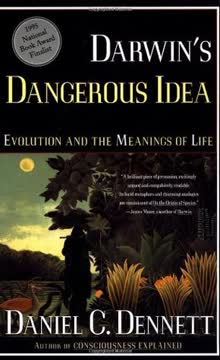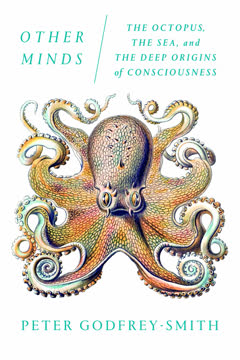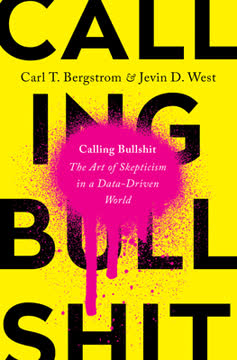النقاط الرئيسية
1. تطور الثقافة يدفع نحو تعقيد اجتماعي متزايد وعدم توازن الصفر
منذ آلاف السنين وحتى الوقت الحاضر، ينمو التعقيد الاجتماعي في النطاق والعمق.
توسيع عدم توازن الصفر: لقد اتسمت تاريخ البشرية باتجاه مستمر نحو تعقيد اجتماعي أكبر وترابط متزايد. يقود هذه العملية:
- التقدم التكنولوجي، خاصة في:
- إنتاج الطاقة وإدارتها
- معالجة المعلومات والاتصالات
- النقل والتجارة
- التخصص الاقتصادي وتقسيم العمل
- تطور التنظيم السياسي من الجماعات إلى الزعامات إلى الدول
مع تزايد تعقيد المجتمعات، تصبح أكثر ترابطًا، مما يخلق حالات يصبح فيها التعاون مفيدًا للطرفين (عدم توازن الصفر). وقد استمر هذا الاتجاه منذ العصور ما قبل التاريخ مرورًا بتطوير الزراعة، وظهور الحضارات، وحتى عالمنا المعولم الحديث.
2. تكنولوجيا المعلومات تعزز التقدم الاجتماعي وتشكل ديناميات القوة
كلما كانت البيانات تتحرك بسهولة أكبر، كلما كان بإمكان الدماغ الاجتماعي أن يكون أكبر وأكثر كثافة.
المعلومات كعامل محفز: على مر التاريخ، كانت التقدمات في تكنولوجيا المعلومات محورية في دفع التغيير الاجتماعي والسياسي:
- الكتابة وتدوين السجلات مكنت من الحكم المعقد والتجارة
- الطباعة سهلت:
- الإصلاح الديني
- الثورة العلمية
- صعود القومية والدول الحديثة
- التقنيات الرقمية الحديثة تعيد تشكيل:
- التجارة والمالية العالمية
- التنظيم السياسي والنشاط
- التبادل الثقافي وتشكيل الهوية
تميل هذه التقنيات إلى لامركزية السلطة مع مرور الوقت، مما يتحدى الهياكل القائمة ويمكّن أشكال جديدة من التنظيم الاجتماعي. ومع ذلك، يمكن أيضًا استخدامها من قبل السلطات لتوحيد السيطرة، مما يخلق توترًا ديناميكيًا بين المركزية واللامركزية في السلطة.
3. التطور البيولوجي والثقافي يشتركان في ديناميات واتجاهات مشتركة
التطور الثقافي يعكس طبيعة الإنسان بشكل مزدوج. لا يقتصر الأمر على أن البشر يولدون ابتكارات ثقافية؛ بل يقومون أيضًا بالحكم عليها.
عمليات متوازية: يظهر كل من التطور البيولوجي والثقافي أنماطًا مشابهة:
- زيادة التعقيد مع مرور الوقت
- توسيع التفاعلات غير الصفرية
- معالجة المعلومات كعامل رئيسي
في التطور البيولوجي:
- من الكائنات البسيطة إلى المعقدة
- من الخلايا الفردية إلى الحياة متعددة الخلايا
- تطوير أنظمة عصبية متقدمة
في التطور الثقافي:
- من جماعات الصيد إلى الحضارات المعقدة
- من الأنظمة الاقتصادية المحلية إلى العالمية
- تطوير تقنيات متزايدة التعقيد
تشمل كلا العمليتين الحفاظ الانتقائي على الصفات أو الأفكار المفيدة، سواء كانت جينات أو أفكار ثقافية. يمكن اعتبار القدرة البشرية على الثقافة امتدادًا للتطور البيولوجي، مما يسمح بالتكيف السريع وحل المشكلات بما يتجاوز الأطر الزمنية الجينية.
4. الحرب تعزز بشكل متناقض السلام والاندماج الاجتماعي
عندما تنتهي جميع عمليات التجارة والنهب والحرب، قد تكون الجثث ملقاة في كل مكان، وقد يبدو أن الهيكل الاجتماعي في حالة من الفوضى. ومع ذلك، في هذه العملية، قد تكون الثقافة، وهي القائمة الإجمالية للأفكار التي يمكن أن تستند إليها المجتمع، قد تطورت بالفعل.
فوائد الصراع غير المقصودة: على الرغم من كونها مدمرة، فإن الحروب قد دفعت بشكل متناقض التقدم الاجتماعي:
- تشجيع الابتكار التكنولوجي
- تعزيز التوحيد السياسي والمركزية
- تحفيز التكامل الاقتصادي لدعم الجهود العسكرية
أمثلة تاريخية:
- اتحاد المدن اليونانية ضد الغزو الفارسي
- تشكيل الدول القومية في أوروبا
- تطوير المؤسسات الدولية بعد الحروب العالمية
تخلق الحرب ضغوطًا تؤدي غالبًا إلى:
- تحسين البنية التحتية للاتصالات والنقل
- توحيد القوانين والممارسات عبر المناطق
- تطوير هويات ثقافية مشتركة
ومع ذلك، مع تزايد ترابط المجتمعات وزيادة تدمير الحروب، فإن تكاليف الصراع تتجاوز بشكل متزايد الفوائد المحتملة، مما يدفع للبحث عن وسائل بديلة للتنافس والتعاون.
5. الاعتماد الاقتصادي والتقدم التكنولوجي يعززان الحوكمة العالمية
كلما وسعت التكنولوجيا نطاق عدم توازن الصفر، ظهرت تهديدات جديدة من نوع الصفر، فقط ليتم مكافحتها من خلال حوكمة أكبر بطريقة أو بأخرى.
حوكمة عالمية: مع زيادة التكامل الاقتصادي والتكنولوجي، تزداد الحاجة إلى التنسيق فوق الوطني:
- التحديات العالمية تتطلب حلولًا عالمية:
- تغير المناخ
- الأوبئة
- الاستقرار المالي
- الأمن السيبراني
أشكال جديدة من الحوكمة العالمية:
- المنظمات الدولية (الأمم المتحدة، منظمة التجارة العالمية، صندوق النقد الدولي)
- الكتل الإقليمية (الاتحاد الأوروبي، آسيان)
- المعاهدات والاتفاقيات الدولية
- المجتمع المدني العالمي والمنظمات غير الحكومية
تتطور هذه الهياكل لإدارة التعقيد المتزايد للتفاعلات العالمية، موازنة بين السيادة الوطنية والحاجة إلى العمل الجماعي. بينما قد لا تظهر حكومة عالمية كاملة، فإن الاتجاه يميل نحو تنسيق دولي أكثر قوة وشمولية.
6. الحرية والتعددية تنبثقان من تقدم تكنولوجيا المعلومات
القول بأنك قد وُضعت في موقف عدم توازن الصفر يعني أنك فقدت السيطرة الأحادية على مستقبلك - أن مصيرك قد أُخذ إلى حد ما من يديك وانتشر بين الآخرين، تمامًا كما أن جزءًا من مصيرهم الآن rests في يديك.
تمكين الأفراد: تميل تكنولوجيا المعلومات إلى تعزيز الحرية والتعددية من خلال:
- تقليل تكلفة الاتصال والتنظيم
- تمكين اتخاذ القرارات اللامركزية
- تسهيل انتشار الأفكار والثقافات المتنوعة
أمثلة تاريخية:
- الطباعة التي مكنت من الإصلاح الديني والنقاش العلمي
- الراديو والتلفزيون اللذان وسعا الوصول إلى المعلومات
- الإنترنت ووسائل التواصل الاجتماعي التي تمكّن الحركات الشعبية
ومع ذلك، يمكن أيضًا استخدام هذه التقنيات للمراقبة والسيطرة، مما يخلق توترًا بين التحرر والقمع. الاتجاه على المدى الطويل يميل نحو الانفتاح والتعددية، حيث تكافح الأنظمة المغلقة للتنافس اقتصاديًا والابتكار تكنولوجيًا.
7. المستقبل يتطلب موازنة الأمن والحرية والتقدم الأخلاقي
غريب كما يبدو، فإن أفضل طريقة لمنع تباطؤ العولمة الاقتصادية بشكل كبير قد تكون بتباطؤها قليلاً.
التنقل عبر التعقيدات: مع استمرار التكامل العالمي، تواجه المجتمعات مقايضات صعبة:
- الأمن مقابل الخصوصية
- الكفاءة الاقتصادية مقابل الاستقرار الاجتماعي
- التنوع الثقافي مقابل القيم المشتركة
استراتيجيات محتملة:
- تطوير مؤسسات دولية قوية
- الاستثمار في التعليم وفهم الثقافات المتعددة
- تعزيز الأطر الأخلاقية للتقنيات الناشئة
- موازنة النمو الاقتصادي مع الاستدامة البيئية
يتطلب المستقبل ليس فقط التقدم التكنولوجي والاقتصادي، ولكن أيضًا التنمية الأخلاقية والروحية. يصبح تنمية التعاطف والتعاون وإحساس المصير المشترك عبر الحدود الثقافية والوطنية أمرًا حاسمًا لإدارة تعقيدات عالم معولم.
آخر تحديث::
FAQ
What's Nonzero: The Logic of Human Destiny about?
- Exploration of evolution: The book examines both biological and cultural evolution, arguing that they are driven by non-zero-sum dynamics, where cooperation leads to mutual benefits.
- Complexity and interconnectedness: Wright discusses how societies evolve towards greater complexity and cooperation, drawing parallels between the evolution of organisms and human societies.
- Purposeful directionality: The author suggests that evolution has a direction and purpose, indicating that the growth of complexity in life forms is not random but a result of adaptive strategies.
Why should I read Nonzero: The Logic of Human Destiny?
- Unique historical perspective: The book offers a fresh lens on human history, emphasizing cooperation and non-zero-sum interactions in shaping societies.
- Interdisciplinary insights: Wright combines biology, sociology, and history, providing a comprehensive understanding of human development.
- Optimistic outlook: It challenges readers to consider the implications of evolution on morality, consciousness, and the future of humanity.
What are the key takeaways of Nonzero: The Logic of Human Destiny?
- Non-zero-sum dynamics: Human progress is driven by interactions where cooperation leads to greater overall benefits for all parties involved.
- Cultural parallels biological evolution: Wright argues that cultures evolve through similar processes of adaptation and cooperation as organisms do.
- Potential for global consciousness: The book raises the possibility of humanity evolving into a collective consciousness as interconnectedness increases.
How does Robert Wright define non-zero-sum games in Nonzero: The Logic of Human Destiny?
- Basic definition: Non-zero-sum games are situations where one party's gain does not necessarily mean another's loss, allowing for mutual benefits.
- Examples in human interaction: Wright illustrates these games through trade and cooperation, leading to outcomes that benefit all parties involved.
- Historical implications: The concept is central to understanding how societies evolve from simple to more complex structures through cooperation.
What role does technology play in Nonzero: The Logic of Human Destiny?
- Facilitating cooperation: Technological advancements create opportunities for non-zero-sum interactions, promoting social complexity.
- Historical examples: Technologies like agriculture and writing have transformed societies, allowing for greater organization and collaboration.
- Future trends: Wright suggests that as technology evolves, it will further enhance non-zero-sum interactions, shaping human societies.
How does Nonzero: The Logic of Human Destiny address the concept of cultural evolution?
- Cultural evolution defined: Wright sees it as a process where societies develop and become more complex over time, driven by technology and cooperation.
- Patterns of development: The book outlines transitions from hunter-gatherer to agricultural and state-level societies, each increasing in complexity.
- Interconnectedness of cultures: Cultural evolution is not isolated; cultures influence each other through trade, conflict, and communication.
What are the best quotes from Nonzero: The Logic of Human Destiny and what do they mean?
- “The more closely we examine...”: This quote encapsulates Wright's thesis that evolution and history have a purposeful direction toward complexity and cooperation.
- “Non-zero-sumness is a kind of potential...”: Wright emphasizes the dual nature of non-zero-sumness and the importance of managing interactions for mutual gain.
- “The arrow of human history...”: Suggests that human history is inherently progressive, building on previous achievements and complexities.
How does Nonzero: The Logic of Human Destiny relate to current global issues?
- Global interconnectedness: The book's exploration of non-zero-sum interactions is relevant in today's globalized world, where cooperation is essential for addressing issues like climate change.
- Potential for conflict: While emphasizing positive aspects, it acknowledges potential conflicts, informing strategies for resolution and cooperation.
- Future implications: Wright's arguments suggest humanity can overcome challenges through increased cooperation and innovation.
What is the significance of non-zero-sum interactions in Nonzero: The Logic of Human Destiny?
- Foundation of cooperation: These interactions are crucial for understanding how societies thrive through collaboration, leading to shared benefits.
- Cultural evolution: Cultures embracing non-zero-sum dynamics tend to be more successful and resilient, fostering trust and cooperation.
- Future societies: As global interdependence increases, engaging in non-zero-sum interactions will be essential for addressing global challenges.
How does Nonzero: The Logic of Human Destiny address the idea of purpose in evolution?
- Teleological perspective: Wright argues that evolution has a direction and purpose, as evidenced by the increasing complexity of life forms.
- Cultural and biological alignment: Both types of evolution pursue complexity and cooperation, hinting at an overarching purpose.
- Critique of nihilism: By positing purposeful evolution, Wright counters nihilistic views, advocating for a more optimistic outlook on human progress.
How does Nonzero: The Logic of Human Destiny connect to the future of humanity?
- Global interconnectedness: As the world becomes more interconnected, the potential for non-zero-sum interactions increases, leading to a more cooperative global society.
- Moral evolution: Humanity has the opportunity to evolve morally, fostering a sense of global citizenship and shared responsibility.
- Hope for progress: Understanding and embracing non-zero-sum dynamics can help navigate future challenges and create a more harmonious world.
What criticisms or counterarguments does Nonzero: The Logic of Human Destiny address?
- Skepticism of teleology: Wright acknowledges skepticism about purpose in evolution, addressing views that see it as a random process.
- Complexity of human behavior: The book recognizes that not all interactions are non-zero-sum and that competition still plays a role.
- Historical misinterpretations: Wright critiques narratives focused solely on conflict, advocating for a nuanced understanding of human history.
مراجعات
كتاب Nonzero يتلقى آراء متباينة، حيث يُشاد بأفكاره المثيرة للتفكير حول تطور الثقافة والتفاعلات غير الصفرية التي تدفع التقدم البشري. يقدّر القراء نظرة رايت المتفائلة للتاريخ وإمكانيات المستقبل. ومع ذلك، ينتقد البعض الكتاب بسبب تبسيطه المفرط، والتفسير الانتقائي للأدلة، والاستنتاجات المبالغ فيها. يُعتبر أسلوب الكتابة بشكل عام جذابًا، على الرغم من أن البعض يجدونه متكررًا. بينما يجد العديد من القراء أن المفاهيم الأساسية مثيرة للاهتمام، تختلف الآراء حول إقناع الكتاب بشكل عام وصرامته العلمية.
Similar Books
















